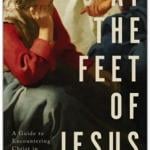Laurence Moore’s Religious Outsiders and the Making of Americans is a study of American religion that is not considered “mainstream” or “mainline”—Mormons, Catholics, Jews, Christian Science, Fundamentalists, Black churches. The goal is not to fill in a gap. The goal is to challenge the assumption that the “mainline” should function as a norm of American religion. American religion—indeed, Americans—have been made, Moore argues, by outsiders as much as by insiders. In a concluding chapter, he explains how toleration has arisen not... Read more




















